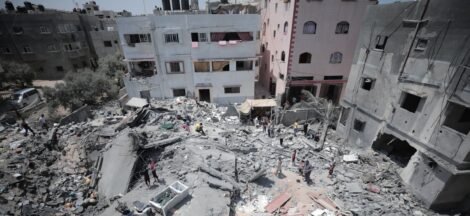# Saudi Crown Prince and Palestinian President Discuss Upcoming Peace Conference in 2025
Saudi-Palestinian Peace Talks Gain Momentum Ahead of 2025 Conference
In a significant diplomatic development, Saudi Crown Prince Mohammed bin Salman and Palestinian President Mahmoud Abbas recently held high-level discussions to advance the Saudi-Palestinian peace talks ahead of a major international peace conference scheduled for 2025. The meeting, which took place in Riyadh, underscored Saudi Arabia’s growing role in mediating the Israeli-Palestinian conflict and fostering regional stability. The Saudi-Palestinian peace talks are seen as a crucial step toward a broader Middle East peace initiative, with both leaders emphasizing the need for a two-state solution and enhanced humanitarian support for Palestinians.
The upcoming 2025 peace conference is expected to bring together key stakeholders, including Arab states, Western powers, and international organizations, to address long-standing disputes and explore pathways to lasting peace. Analysts suggest that Saudi Arabia’s involvement could be a game-changer, given its diplomatic influence and recent normalization efforts with Israel under the Abraham Accords framework. The Saudi-Palestinian peace talks also highlight Riyadh’s balancing act between supporting Palestinian self-determination and pursuing strategic alliances with Israel and the United States.
Key Focus Areas of the Saudi-Palestinian Dialogue
During their discussions, Crown Prince Mohammed bin Salman and President Abbas reportedly focused on several critical issues, including economic aid for the Palestinian territories, security coordination, and political recognition. Saudi Arabia has pledged increased financial assistance to help rebuild Gaza and support infrastructure projects in the West Bank, signaling its commitment to Palestinian development. Additionally, both leaders stressed the importance of reviving negotiations based on the 2002 Arab Peace Initiative, which calls for Israeli withdrawal from occupied territories in exchange for normalized relations with Arab states.
Another major topic was the potential for Saudi Arabia to play a mediating role between Hamas and Fatah, the two dominant Palestinian factions whose internal divisions have long hindered unified governance. By fostering reconciliation, Riyadh aims to strengthen the Palestinian Authority’s position in future negotiations with Israel. The Saudi-Palestinian peace talks also touched on the status of Jerusalem, with Abbas reiterating the Palestinian demand for East Jerusalem as the capital of a future state.
Regional and Global Implications of the 2025 Peace Conference
The planned 2025 peace conference has drawn widespread attention from regional and global powers, with many viewing it as a potential turning point in Middle East diplomacy. The United States and European Union have expressed support for the initiative, while Israel has cautiously welcomed Saudi involvement, provided that discussions remain balanced. For Saudi Arabia, the conference represents an opportunity to bolster its leadership role in the Arab world and strengthen ties with Western allies.
However, challenges remain, particularly regarding Israel’s current government, which has taken a hardline stance on settlements and Palestinian statehood. The success of the Saudi-Palestinian peace talks will depend on whether Riyadh can leverage its influence to encourage concessions from both sides. Meanwhile, Iran and its proxies have criticized the initiative, framing it as a betrayal of Palestinian rights—a narrative that could complicate regional dynamics.
Humanitarian and Economic Dimensions of the Peace Process
Beyond political negotiations, the Saudi-Palestinian discussions emphasized the urgent need for humanitarian relief in Gaza and the West Bank. Saudi Arabia has committed to funding hospitals, schools, and housing projects, addressing dire living conditions exacerbated by years of conflict and blockade. The 2025 peace conference is expected to include a dedicated session on economic recovery, with proposals for regional investment in Palestinian industries and job creation programs.
International organizations such as the United Nations and World Bank are likely to participate in these efforts, ensuring that aid reaches vulnerable populations. The Saudi-Palestinian peace talks also explored opportunities for cross-border cooperation in energy and technology, which could foster economic interdependence and reduce tensions over time.
Public and Expert Reactions to the Diplomatic Efforts
Reactions to the Saudi-Palestinian dialogue have been mixed. While many Palestinians welcome Saudi Arabia’s support, some factions remain skeptical of Riyadh’s alignment with U.S. and Israeli interests. On the other hand, Israeli officials have cautiously praised the initiative but insist that any agreement must prioritize Israel’s security concerns. Regional experts suggest that the 2025 conference could either break the decades-long deadlock or face setbacks if key parties refuse to compromise.
International observers have highlighted the importance of inclusivity in the peace process, urging Saudi Arabia to engage civil society groups and grassroots movements alongside political leaders. Transparency and accountability will be critical to building public trust in the Saudi-Palestinian peace talks and ensuring that any agreements are sustainable.
Looking Ahead: Prospects for Peace in 2025 and Beyond
As preparations for the 2025 peace conference intensify, all eyes are on Saudi Arabia’s ability to bridge divides and deliver tangible progress. The Saudi-Palestinian peace talks represent a rare opportunity to revive a stalled peace process, but success will require bold leadership, international cooperation, and a willingness to address core grievances on both sides. Whether this initiative leads to a historic breakthrough or another cycle of disappointment remains to be seen, but the stakes for regional stability could not be higher.

In the coming months, further details about the conference agenda and participant list will emerge, offering clearer insights into its potential outcomes. For now, the diplomatic engagement between Saudi Arabia and Palestine signals a renewed commitment to resolving one of the world’s most protracted conflicts—a goal that, if achieved, could reshape the Middle East for generations to come.




 Tennessee Flash Flooding Leaves Three Dead – Latest Updates
Tennessee Flash Flooding Leaves Three Dead – Latest Updates